Buy Vyvanse Online
Showing all 5 results
-
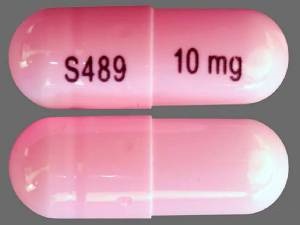
Vyvanse 10mg
$349.00 Select Pills -
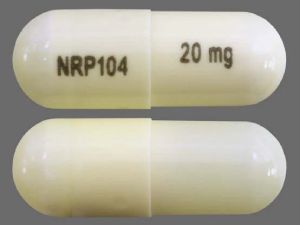
Vyvanse 20mg
$359.00 Select Pills -
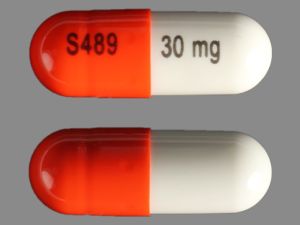
Vyvanse 30mg
$369.00 Select Pills -
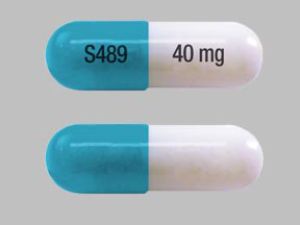
Vyvanse 40mg
$379.00 Select Pills -
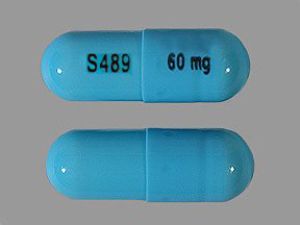
Vyvanse 60mg
$389.00 Select Pills
What is Vyvanse?
It is a prescription-based medication for attention deficit hyperactivity disorder and binge eating disorders. It contains lisdexamfetamine dimesylate, a central nervous system stimulant that increases levels of norepinephrine and dopamine in the brain. This helps improve attention, focus, and impulse control in people with ADHD.
Vyvanse is usually taken once a day in the morning in capsule form and is an FDA-approved drug. It is important to note that Vyvanse is a controlled substance and should only be taken under the supervision of a licensed healthcare provider.
Use of Vyvanse
Healthcare professionals prescribe Vyvanse to treat attention deficit hyperactivity disorder (ADHD) and binge eating disorders. In ADHD management, Vyvanse helps improve attention span, focus, and impulse control by affecting neurotransmitter levels in the brain. It’s often a preferred choice due to its extended-release mechanism, which provides consistent symptom relief throughout the day.
For binge eating disorders, Vyvanse can reduce the frequency of binge eating episodes. It’s believed to act on brain pathways that regulate appetite and impulse control.
It’s crucial to use Vyvanse as a doctor directs, starting with a low dose and adjusting based on individual response. Routine monitoring and follow-up arrangements are necessary to ensure its effectiveness and manage potential side effects, including insomnia, increased heart rate, and decreased appetite.
Vyvanse is not suitable for everyone, and its use should be discussed thoroughly with a healthcare provider to ensure appropriate treatment and minimize risks.
How does Vyvanse work?
Vyvanse (lisdexamfetamine) is a prodrug that is metabolized in the body into dextroamphetamine, a central nervous system stimulant. Dextroamphetamine increases the levels of certain neurotransmitters, primarily dopamine and norepinephrine, in the brain.
This enhances communication between nerve cells, improving attention, focus, and impulse control.
Vyvanse’s gradual release mechanism provides sustained effects over time, making it practical for managing conditions like ADHD and binge eating disorders. However, its use should be closely monitored because of possible side effects and the risk of misuse or dependence.
Doses of Vyvanse
The dosages of Vyvanse (lisdexamfetamine) can vary depending on the individual’s medical condition, response to treatment, and the prescribing healthcare professional’s recommendations. The following are typical dosage ranges for Vyvanse:
ADHD:
Starting Dose: Typically, for children ages 6 to 12, the starting dose is around 30 mg once daily in the morning. It might begin with 30 mg or 40 mg once daily for adolescents and adults.
Dose Adjustment: The dose can be adjusted in increments of 10 mg or 20 mg per week, as needed, to achieve the desired therapeutic effect.
Maximum Dose: The recommended daily dose is generally 70 mg.
Binge Eating Disorder:
Starting Dose: The typical starting dose is usually 30 mg once daily in the morning.
Dose Adjustment: If necessary, the dose can be increased in increments of 20 mg per week.
Maximum Dose: The recommended daily dose is usually 70 mg.
It’s important to note that individual responses to medication can vary, and healthcare professionals will carefully titrate the amount based on each patient’s needs and tolerances. Vyvanse is typically taken orally in the morning, with or without food.
It’s crucial to follow the prescribed dosing instructions and to communicate regularly with a healthcare provider to ensure the medication’s effectiveness and manage any potential side effects. Adjustments to the dosage should only be made under the guidance of a qualified doctor.
Precautions of Vyvanse
Take medicine precisely as prescribed by your doctor. Don’t take more than the recommended dose or for longer than prescribed. Inform your doctor of your medical history of conditions, like high blood pressure, heart disease, or glaucoma, or if you have a history of drug or alcohol abuse.
Do not consume alcohol or other drugs while taking Vyvanse, as they can interact with the medication and raise the risk of side effects.
Swallow the Vyvanse capsules whole. Do not crush, chew, or break them, as this may release too much medication at once and increase the risk of side effects.
You should avoid using this medicine if you are allergic to lisdexamfetamine or any of its components.
Avoid using this medicine if you have had an MAO inhibitor in the past few days, as it may result in a dangerous drug interaction.
Store Vyvanse in a secure location out of the reach of children, as it can be dangerous if taken by someone who has not been prescribed it. Be sure to follow your doctor regularly to monitor your response to Vyvanse and to make any necessary adjustments to your treatment plan.
Remember that Vyvanse is a prescription medication, and it must be consumed under the supervision of a doctor. To place your order and get fast home delivery, you must order Vyvanse online.
Vyvanse (lisdexamfetamine) is a medication that comes with several essential warnings and precautions. It should only be used under the guidance of a qualified healthcare professional. Some of the critical alerts include:
Misuse and Dependence: Vyvanse is a central nervous system stimulant with the potential for misuse, abuse, and dependence. It should be used only as prescribed and monitored closely for signs of misuse or addiction.
Cardiovascular Risks: Vyvanse can increase heart rate and blood pressure. It should be used cautiously in individuals with heart problems, high blood pressure, or a history of heart disease.
Mental Health Effects: Stimulants like Vyvanse can exacerbate symptoms of certain psychiatric conditions, such as anxiety, agitation, and psychosis. A careful evaluation is needed before prescribing Vyvanse to people with a history of mental health issues.
Growth Suppression: Long-term use of Vyvanse may affect growth in children. Regular monitoring of development should occur during treatment.
Gastrointestinal Issues: Vyvanse can cause stomach-related problems, including nausea, vomiting, and abdominal pain.
Circulation Problems: Fingers and toes may turn white, blue, or purple in response to cold temperatures or emotional stress, indicating potential circulation issues.
Allergic Reactions: Allergic reactions, including rash, hives, swelling, and difficulty breathing, have been reported with Vyvanse. Seek medical attention if these occur.
Priapism: Prolonged and painful erections (priapism) have been reported in rare cases. Seek immediate medical help if this occurs.
Substance Interactions: Vyvanse may interact with other medications, including monoamine oxidase inhibitors (MAOIs), which can lead to dangerous side effects.
Pregnancy and Breastfeeding: The safety of Vyvanse during pregnancy and breastfeeding is not well established.
Consult a healthcare provider before using Vyvanse in these situations. This is not an exhaustive list of warnings. It’s important to discuss your medical history, current health conditions, and any other medications you are taking with your doctor before starting Vyvanse.
Adhering to prescribed dosages and regular medical follow-ups is crucial for the safe and effective use of Vyvanse.
You can also buy Vyvanse from us using code SALE10 to get a flat 10% off.
